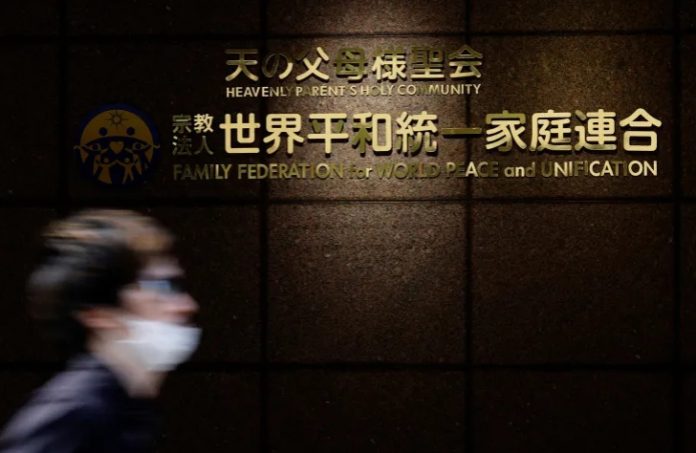The Japanese government issued a statement Thursday saying it would ask the court to strip the Unification Church of its legal status as a religion, as well as revoke tax exemptions and make it more difficult for the group to operate within Japan.
Last July, former Prime Minister Shinzo Abe was shot dead by a man angry about his alleged ties to the Unification Church. In the aftermath, the Church faced a public backlash in Japan.
Then came a series of revelations that 179 lawmakers from the ruling Liberal Democratic Party (LDP) were found to have ties to the church, including using its members as volunteers in election campaigns. This subsequently led to a drop in public support for Prime Minister Fumio Kishida. His party spokespersons have strongly denied any “systematic links” with the group.
On Friday, the government will file a court request to revoke the church’s status, according to Masahito Moriyama. He told a press briefing:
It has impinged on people’s freedoms for a long time, prevented them from making sound decisions, severely hurt them and disrupted their lives.
Moriyama said a surge of public concern after Abe’s death had prompted him to investigate. In a statement, the Unification Church expressed “extreme regret that the government has made such an important decision based on biased information from a left-wing legal group set up to destroy our corporation.” The group in question is the National Network of Lawyers Against Spiritual Sales, which is pursuing compensation cases against the church.
The group has been pushing the government to take action against the church for a long time. Even before Abe’s assassination, it had urged the LDP before Abe’s death to sever its ties. The group notes that the church collects about 10 billion yen (S$91 million) a year in Japan. A former church member, who posts online under the alias Keiko Kaburagi to protect her identity, said:
It has finally happened, but has been a long time coming. This isn’t the end though, we need to make sure the order is carried out.
Now known as the Family Federation for Peace and Unification, the church was founded in South Korea in 1954 by the late Sun Myung Moon, an anti-communist and self-proclaimed messiah who knew Abe’s grandfather, former Prime Minister Nobusuke Kishi. The church has been active in Japan for decades, soliciting large donations from its members. There are currently about 100,000 active members of the church.
The church has faced hundreds of civil lawsuits and acknowledged excessive donations but says the problem has been mitigated for more than a decade. It recently pledged further reforms.
If the church’s status is cancelled, it will be the first case under civil law. Two previous cases involved criminal prosecutions – the doomsday sect Aum Shinrikyo, which carried out the sarin nerve gas attack on the Tokyo underground, and the Myokakuji group, whose leaders were convicted of fraud.
